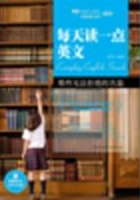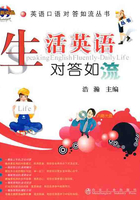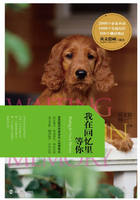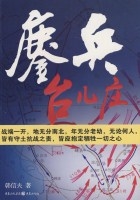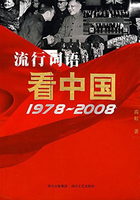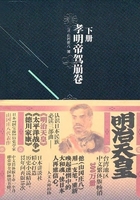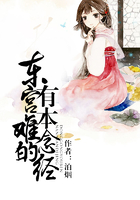In the hope of restoring his eyesight, Tarkington had to go through more than twelve operations within one year. With local anaesthetic! Did he rail against this? He knew it had to be done. He knew he couldn’t escape it, so the only way to lessen his suffering was to take it with grace. He refused a private room at the hospital and went into a ward, where he could be with other people who had troubles, too. He tried to cheer them up. And when he had to submit to repeated operations—fully conscious of what was being done to his eyes—he tried to remember how fortunate he was. “How wonderful!” he said. “How wonderful, that science now has the skill to operate on anything so delicate as the human eye!”
The average man would have been a nervous wreck if he had had to endure more than twelve operations and blindness. Yet Tarkington said, “I would not exchange this experience for a happier one.” It taught him acceptance. It taught him that nothing life could bring him was beyond his strength to endure. It taught him, as John Milton discovered, that “It is not miserable to be blind, it is only miserable not to be able to endure blindness.”
If we rail and kick against it and grow bitter, we won’t change the inevitable; but we will change ourselves.
I once refused to accept an inevitable situation with which I was confronted. I played the fool and railed against it, and rebelled. I turned my nights into hells of insomnia. I brought upon myself everything I didn’t want. Finally, after a year of self-torture, I had to accept what I knew from the outset I couldn’t possibly alter.
I should have cried out years ago with old Walt Whitman:
Oh, to confront night, storms, hunger, ridicule, accident, rebuffs, as the trees and animals do.
已故的布斯?塔金顿常常挂在嘴边的一句话就是:“我能承受人生旅途上的任何苦难,可唯有一样例外——失明。那是我永远都无法承受的。”
后来,到了六十多岁的时候,有一天,塔金顿低头看着地毯,发现地毯的色彩开始变得模糊不清。他根本无法看清花纹的样式。塔金顿随即去找了一位眼科专家,最终得知了那个不幸的噩耗:自己正在逐渐丧失视力,有一只眼差不多已经失明了,而另一只眼情况也不容乐观。他最担心的事情最终还是发生了。
塔金顿是如何对待这种“灾难性的打击”呢?他是不是认为“这就是我的人生,我的一生就这么完了”呢?没有,令他自己吃惊的是,他感到开心,甚至还不失幽默。那些浮动在眼前的“黑斑”曾经让他很苦恼。这些“黑斑”会阻挡他的眼睛,并让他无法看清眼前的东西。不过现在的情形是,当那些最大的黑斑浮过眼睛时,他就会说:“你好啊!黑斑爷爷又来了!猜猜今天这么好的天气,它想到哪里去啊!”
在这样的情况下,命运能否战胜我们的精神呢?回答是否定的!当塔金顿彻底失明后,他说:“我觉得自己能够接受这一事实,如同别人能够承受其他事情一样。如果我丧失了五种感官功能,我知道自己还可以生活在自己的思想里。因为无论我们清楚与否,我们唯有通过思想才能看清生活,唯有通过思想才能体验生活。”
为了恢复视力,塔金顿不得不在一年之内经历了12次手术,而且手术用的麻醉剂还是当地生产的!他是否为此担心过呢?没有,因为他知道这些都是他必须承受的,他知道没有逃避的余地,所以勇敢地接受它才是唯一能够减轻痛苦的方法。他放弃了医院里的私人病房,选择与其他病友一起住在大病房里。他费尽周折让其他病友精神振奋。当他不得不面对那反反复复的手术时——他心里十分明白眼科手术的难度,他仍竭尽全力地想象自己有多么幸运。他说:“实在太神奇了!实在太神奇了!现在的科学已经可以为任何东西做手术了,想不到连这么脆弱的眼睛也可以!”
如果一个人经历了12次以上的手术,仍生活在黑暗中,恐怕他的精神早就崩溃了。然而,塔斯顿说:“我可不愿意把这样的经历换成一些更开心的事情。”正是这次特殊的经历教他学会了接受,教他懂得了,生活里的一切根本没有什么是他能力所不及的,也没有什么是他无法承受的。他懂得了富尔顿所说的:“失明并不可怕,可怕的是你无法接受失明。”
如果我们一味地反抗它,只会越来越痛苦,因为事情无法改变,但是我们可以改变我们自己。
有一次,因为我不愿认可一件不可避免的事情。于是,便做了一件傻事——我反抗它,抱怨它。结果一连几个夜晚,我都无法合眼,而且还使自己痛苦不堪。经过一整年的自我虐待,我终于承认了这些不可改变的事实。
一年前,我就应该大声朗读惠特曼的诗句:
哦,去面对黑夜、暴风雨、饥饿、愚弄、意外和挫折吧!就像树和动物一样。
心灵小语
失明并不可怕,可怕的是你无法接受失明。当你怀着一颗坦然的心面对一切时,不幸也就没那么可怕了。
记忆填空
1.__ could fate ever conquer a spirit like that? The__ is it couldn’t. When total blindness__ in, Tarkington said,“I found I could take the__ of my eyesight, just as a man can take anything__. If I lost all five of my senses, I know I could live on inside my__. For it is in the mind we see, and in the mind we__, whether we know it or not.”
2. The average man would have been a nervous wreck__ he had had to endure more than twelve operations and blindness. Yet Tarkington said,“I would not__ this experience for a happier one.”It__ him acceptance. It taught him that__ life could bring him was beyond his strength to endure.
佳句翻译
1. 我能承受人生旅途上的任何苦难,可唯有一样例外——失明。
译______________
2. 因为无论我们清楚与否,我们唯有通过思想才能看清生活,唯有通过思想才能体验生活。
译______________
3. 失明并不可怕,可怕的是你无法接受失明。
译______________
短语应用
1. In the hope of restoring his eyesight, Tarkington had to go through more than twelve operations within one year.
in the hope of:希望;怀着……的期望;期待着
造______________
2. He tried to cheer them up.
cheer up:鼓励;(使)高兴起来;(使)振作起来
造______________
多一小时的清醒
How to Add One Hour a Day to Your Waking Life
戴尔·卡耐基 / Dale Carnegie
Why am I writing a chapter on preventing fatigue in a book on preventing worry? That is simple: because fatigue often produces worry, or, at least, it makes you susceptible to worry. Any medical student will tell you that fatigue lowers physical resistance to the common cold and hundreds of other diseases and any psychiatrist will tell you that fatigue also lowers your resistance to the emotions of fear and worry. So preventing fatigue tends to prevent worry.
Did I say “tends to prevent worry? ” That is putting it mildly. Dr. Edmund Jacobson goes much further. Dr. Jacob son has written two books on relaxation: Progressive Relaxation and You Must Relax, and as director of the University of Chicago Laboratory for Clinical Physiology, he has spent years conducting investigations in using relaxation as a method in medical practice. He declares that any nervous or emotional state “fails to exist in the presence of complete relaxation.” That is another way of saying: You cannot continue to worry if you relax.
So, to prevent fatigue and worry, the first rule is: Rest often. Rest before you get tired.

